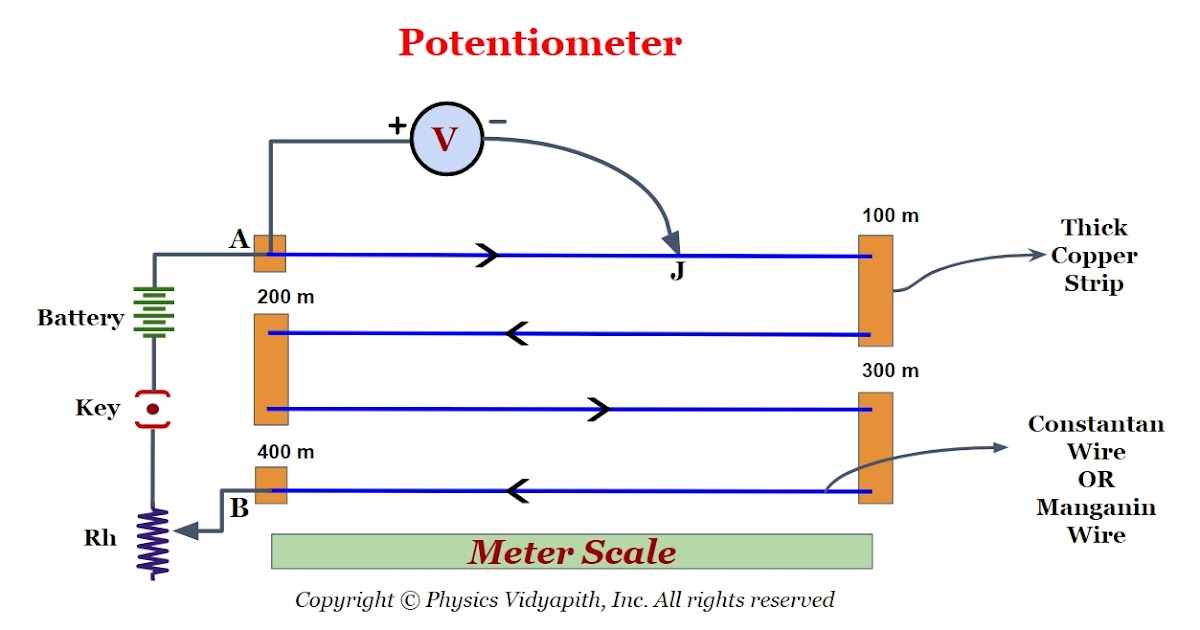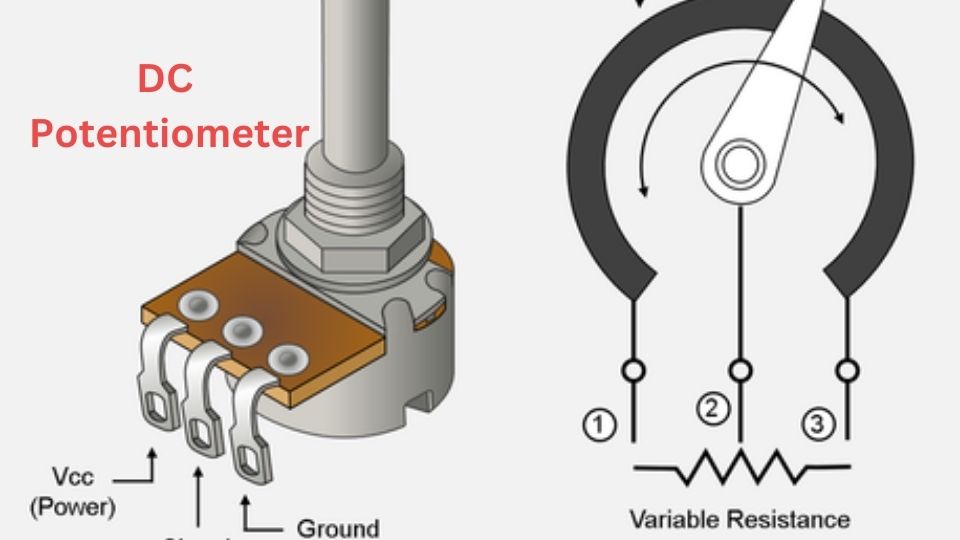Many devices fail to provide the precision required to measure voltage accurately, especially in sensitive applications. Engineers, technicians and DIY enthusiasts often face issues like inaccurate readings and fluctuating measurements. This is where a DC potentiometer comes into play. It offers a reliable solution for high-precision voltage measurements and control in direct current (DC) circuits.
Lets explore what a DC potentiometer is, how it works, its applications, and why it’s an essential tool for professionals in electronics, automotive industries, and laboratory environments in the USA.
What Is a DC Potentiometer?
A DC potentiometer is an instrument designed to measure an unknown voltage by balancing it against a known reference voltage. Unlike traditional voltmeters, which draw current from the circuit and can sometimes provide fluctuating readings, the DC potentiometer operates by matching voltages through a null method, ensuring a highly precise and stable reading.
This precision makes it ideal for laboratory work, calibration processes, and other applications where minute differences in voltage need to be measured.
The Problem with Standard Voltage Measurement Methods
One common issue when measuring voltage in sensitive circuits is the influence of the measurement device itself. Most voltage measuring tools, like digital or analog voltmeters, rely on current flow. This can lead to inaccuracies, especially in low-voltage systems or circuits where even the smallest amount of current leakage can cause significant deviations.
Moreover, traditional methods are not always reliable for testing the performance of high-precision components, such as batteries, sensors, or transducers. That’s where the DC potentiometer shines, offering a solution that ensures precise and accurate voltage comparison without introducing additional current into the circuit.
How Does a DC Potentiometer Work?
The principle behind a DC potentiometer is simple yet effective. It operates by comparing the unknown voltage against a known reference voltage through a balancing process. The key components include:
- A known reference voltage source – This is typically a stable and accurate voltage standard, ensuring that the measurement can be highly precise.
- A slide wire or adjustable resistor – This allows for fine-tuning the balance between the reference voltage and the unknown voltage.
- A galvanometer – This sensitive device detects when the two voltages are balanced, providing a “null” reading that indicates the unknown voltage is equal to the reference voltage.
- Control circuit – This maintains the stability of the reference voltage, ensuring long-term accuracy.
Once the two voltages are balanced, the reading from the potentiometer will be equal to the unknown voltage, with no current flowing through the device. This “null” condition ensures that the measurement is unaffected by the device itself, making it far more accurate than standard voltmeters.
Check: Top Benefits of Installing a Water Filtration System in Your Home
Applications of DC Potentiometers
Due to its high accuracy and reliability, the DC potentiometer has several important applications:
- Calibration of measuring devices: One of the primary uses of a DC potentiometer is in the calibration of other measuring instruments. Since it provides a highly accurate measurement, it’s frequently used in laboratories to calibrate voltmeters, ammeters, and other precision instruments.
- Testing electrical components: In industries like electronics and automotive manufacturing, the performance of batteries, sensors, and transducers must be tested with extreme precision. A DC potentiometer allows engineers to detect even the slightest deviations in voltage, ensuring that components perform within specifications.
- Research and development: Many R&D applications require accurate voltage measurement to test experimental circuits, particularly when working with low-voltage systems.
- Medical devices: Medical equipment that relies on precise voltage inputs, such as electrocardiograms (ECGs) and other diagnostic tools, benefit from the accuracy provided by DC potentiometers.
- Power generation and distribution: In the power industry, where efficiency and stability are critical, DC potentiometers are used to ensure accurate voltage regulation in systems like solar panels, wind turbines, and backup power supplies.

Why Choose a DC Potentiometer?
For those in the USA working in fields where precision and stability are non-negotiable, the DC potentiometer stands out as the tool of choice. Unlike other devices that might be more affordable or simpler to use, the DC potentiometer offers unparalleled accuracy in measuring and comparing voltages.
- No current draw: Unlike voltmeters that can disturb the circuit by drawing current, a DC potentiometer doesn’t interfere with the circuit’s operation.
- High precision: It is capable of detecting minute voltage changes, down to millivolts, making it essential for applications requiring high accuracy.
- Reliable calibration: Many organizations rely on DC potentiometers for calibrating other measuring devices, ensuring long-term accuracy across their operations.
- Stable and consistent readings: Because it operates on a null balance method, once a voltage balance is achieved, the reading is unaffected by fluctuations, ensuring consistency over time.
Choosing the Right DC Potentiometer
When selecting a DC potentiometer, it’s essential to consider the accuracy rating and the range of voltages it can measure. Some potentiometers are designed for high-voltage measurements, while others are suited for low-voltage applications. Additionally, features like a high-quality reference voltage source and stable control circuitry are crucial to ensure long-term performance.
For those in industries like manufacturing, R&D, or medical technology in the USA, investing in a reliable DC potentiometer can improve measurement accuracy and lead to better quality control and product development.
Conclusion
A DC potentiometer offers a highly accurate solution for measuring and comparing voltages without affecting the circuit. By using a reference voltage and balancing technique, it ensures precise and stable readings that are essential for industries requiring high precision. Whether you’re calibrating sensitive equipment, testing electrical components, or conducting research, a DC potentiometer provides the accuracy and reliability you need for consistent results.
For professionals in the USA who deal with delicate electronic systems, choosing a DC potentiometer is a smart investment in ensuring precision and efficiency in your work.

